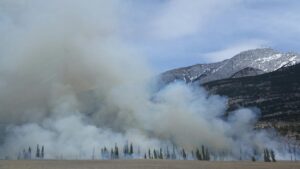Introduction
As climate change unleashes many natural disasters across the United States, homeowners may soon face skyrocketing insurance premiums. Real estate experts have warned, citing the recent devastation caused by Hurricane Helene in Florida and North Carolina. The experts warn that the impact of these disasters could trigger an insurance crisis, resulting in significant financial strain on homeowners.
The experts have highlighted how insurance companies, already stretched thin, will pass the costs of extreme weather events onto consumers through higher premiums. As natural disasters like hurricanes, floods, and wildfires become more frequent and severe, insurers are expected to recalculate risks, driving premiums upward nationwide.
Hurricane Helene and the Home Insurance Fallout
Hurricane Helene tore through parts of Florida and North Carolina and has been one of the most recent examples of the growing threat posed by climate-related disasters. Damages caused by flooding, wind, and storm surges have left insurers facing overwhelming claims. These events create a ripple effect that could result in significant financial challenges for insurance providers and homeowners.
A startling statistic is that only two to four per cent of homeowners in the Carolinas and Florida currently have flood insurance. This means most of those impacted by the hurricane could be facing devastating losses without adequate coverage. The sad fact is that only two to four per cent of homeowners have flood insurance. A potential $34 billion worth of damage could go uninsured.
The Long-Term Outlook: A Nationwide Issue
While the immediate focus is on Florida and the Carolinas, the implications of rising insurance premiums extend far beyond these regions. Insurance companies base their rates on risk assessments, and as natural disasters become more frequent and severe, these assessments will likely change nationwide.
Even homeowners in less disaster-prone areas could see premium increases as insurers attempt to balance out the risk and recover from massive payouts.
This trend presents both challenges and opportunities for real estate professionals. Prospective buyers may face higher homeownership costs, which could temper demand in certain markets. However, it also underscores the importance of educating clients about comprehensive insurance coverage, particularly in high-risk areas.
Preparing for the Future
As the climate crisis escalates, homeowners, real estate professionals, and insurers must adapt. Whether urging clients to invest in flood insurance or navigating the intricacies of insurance premium hikes, understanding how natural disasters impact the housing market will be essential for industry success in the coming years.
In the meantime, realtors continue to warn of an impending insurance crisis, stressing that homeowners should prepare themselves for the financial fallout that more frequent and severe natural disasters could bring.
Government Intervention and Industry Response
With rising insurance premiums on the horizon, there’s growing concern that the situation may become unsustainable for many homeowners. This has led to calls for government intervention to stabilize the housing and insurance markets. Some lawmakers are pushing for federal assistance programs or subsidies that could help offset the increasing insurance costs, especially in disaster-prone areas.
The insurance industry is also taking steps to mitigate its exposure to these growing risks. Companies are exploring new ways to adapt, such as introducing higher deductibles, reducing coverage in high-risk zones, or pulling out of specific markets altogether. Some insurers promote disaster preparedness and resilience efforts in response to these challenges. This could include offering premium discounts for homeowners who take proactive measures, such as elevating homes, installing hurricane shutters, or purchasing flood insurance.
These measures could help slow the pace of premium increases, but they may not be enough to fully address homeowners’ financial burdens. Homeowners in disaster-prone areas should be prepared for the possibility of rising premiums and consider taking steps to protect themselves financially. Industry experts and lawmakers agree that a long-term solution is necessary to address the growing challenges posed by climate change, and homeowners should remain vigilant as the conversation around insurance reform continues.





